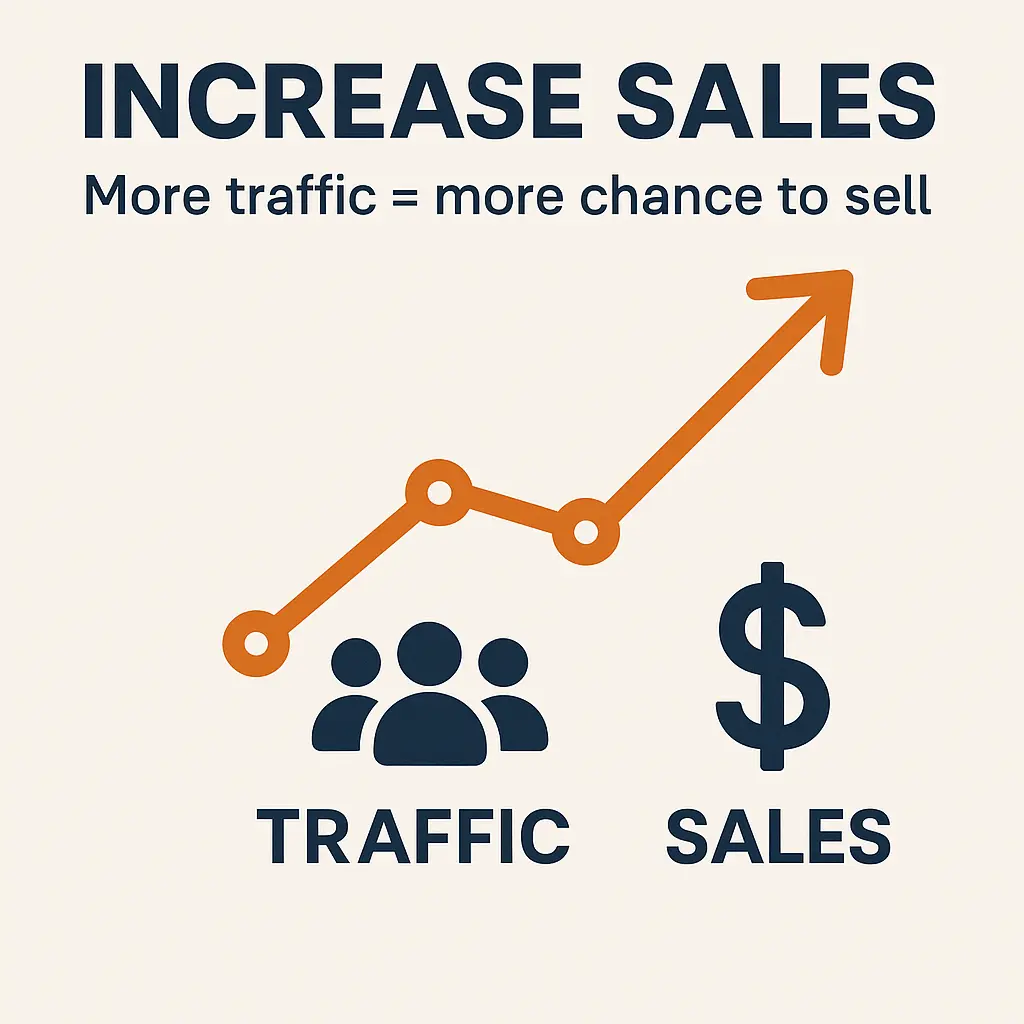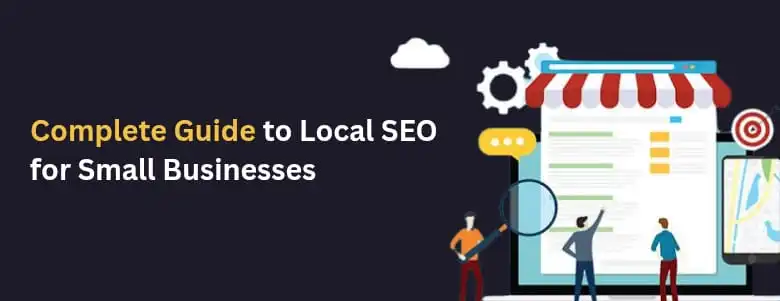In this digital-age world, starting an online store is only the beginning: the much harder part is getting somebody to discover it. You may have the best product, the fastest delivery, or better customer service than anyone, but if nobody knows it is there, you will not be selling much at all!
It can be one of the most powerful tools you have in your SEO (Search Engine Optimization) toolbox — and it is often misunderstood. So let’s keep it simple, clear, and actionable. If you need expert help growing your online store, we offer tailored Link building service which will help your ecommerce business thrive.
Table of Contents
What is Link Building?
Link Building is the process of getting other websites to link back to your online store. Those are called backlinks. Each backlink is like a vote of trust, telling the search engines “this website is important and trustworthy.”
Here’s an example:
You are operating a lemonade stand on a quiet street and all of a sudden, large retail stores are recommending people to come visit you. “This lemonade stand is the best!” Now, people are coming from everywhere to try your lemonade!That’s what backlinks do — they bring more people (and search engines) to your store.
Why Link Building for Ecommerce in 2025 is Important
The ever-changing world of the internet can be hard to keep track of but link building remains one of the primary ranked signals that Google uses to assess the quality of a website.
Here’s what it can do for your ecommerce store:
Increase Traffic: More quality links = more traffic & customers.
Improve Search Rankings: Google is more likely to rank your store highly if others trust you and link to your store.
Increase Sales: More traffic = more chance to sell.
Moz on Link Building: Learn more about link building from Moz’s Link Building Guide

Create Brand Credibility: Being linked to trusted and respected websites will enhance your brand credibility.
It’s not about tricking Google — it’s about proving your store is worth visiting.
Proven Link Building Strategies for Ecommerce in 2025
Now that you know what it is and why it matters, let’s explore some easy-to-follow, proven link building strategies that really work — even if you’re just getting started.
To maximize results, combine proven link building strategies with quality content creation and influencer outreach.
1. Create Content That People Want to Link To.
People don’t usually link to product pages unless you’re a big brand. Instead, focus on creating helpful blog posts, guides, or how-to content.
Example:
Selling yoga mats? Write: “5 Beginner Yoga Poses to Relieve Stress”
Selling home décor? Try: “2025 Color Trends for a Stylish Home”
If your content answers common questions or solves problems, people are more likely to share and link to it.
To fully benefit from these strategies, pairing them with professional SEO services or social media marketing can help amplify your efforts and attract more targeted traffic
2. Reach Out to Blogs & Gift Guide Websites
Every year, thousands of blogs publish:
“Top 10 Gifts for Dads”
“Best Gadgets for College Students”
“Most Loved Products of 2025”
This is your golden opportunity!
Email the authors and suggest your product. Be polite, share a good photo, and explain why your product fits their guide. If they like it, they’ll include a link to your store — and that’s a win!
3. Use Influencer Reviews to Earn Links
Find micro-influencers or bloggers in your niche. Offer them a free product in exchange for a genuine review. If they write about your item and link to your site, that’s a high-value backlink.
It’s a natural, honest way to build both trust and SEO power.
Tip: Focus on influencers with engaged audiences, not just big follower counts.
4. Join Roundups, Interviews, and Podcasts
People love expert tips, stories, and advice from real business owners. If you have a unique product or journey, share your story.
Many small business blogs and podcasts are always looking for:
Guest contributors
Founder stories
Ecommerce success case studies
When featured, you’ll usually get a backlink — and potential new fans.
5. Fix Broken Links on Other Sites (Broken Link Building)
This sounds technical but is super helpful.
Let’s say a blog links to a product similar to yours — but that product is no longer available. That’s called a broken link. You can politely suggest replacing the broken link with a link to your product or blog post.
It helps them, and you earn a backlink. Simple and smart.
Use free tools like Check My Links (Chrome Extension) or Ahrefs’ Broken Link Checker.
6. Create Shareable Visuals and Tools
People love linking to visuals or tools that make life easier.
Some ideas:
Free size guides
Interactive quizzes (“Which Skincare Product Is Right for Me?”)
Comparison charts (“Top 5 Noise-Canceling Headphones in 2025”)
Useful = shareable = linkable.
7. Build Internal Links Too
While backlinks are links from other sites, don’t forget about linking within your own site.
Example:
A blog post about “Spring Fashion Trends” could link to your “Spring Collection” page.
This helps search engines understand your site better — and it improves the customer experience too.
Help A Reporter Out (HARO):
Use HARO to get high-quality backlinks from journalists.
Backlinko’s Skyscraper Technique:
Apply the Skyscraper technique for content-driven backlinks.
Common Link Building Mistakes to Avoid
Buying Links: This may seem like a shortcut, but it’s against Google’s rules and can get your site penalized.
Ignoring Your Niche: A link from a site about gardening won’t help your electronics store. Relevance matters.
Spamming Websites with Messages: Always personalize your outreach. Build real relationships.
Only Linking to Product Pages: Mix it up with blog content, homepage, and helpful guides.
How to Measure Link Building Success
Choosing the right link building strategies can set your ecommerce store apart by attracting high-quality backlinks and boosting rankings. Here’s how you know if your link-building work is paying off:
More backlinks from good websites Higher positions in Google search results Increased organic (unpaid) traffic More brand mentions across the web Boost in sales and conversions
Use tools like:
Google Search Console (free)
Ahrefs / SEMrush (paid)
Ubersuggest (freemium)
Conclusion:
Link building doesn’t have to be overwhelming or confusing. Implementing diverse link building strategies, from guest posts to broken link building, ensures a strong and natural backlink profile. At its core, it’s about getting others to notice and recommend your online store. The more people trust your site — and link to it — the more visibility you gain in search engines, and the more customers you can attract.
Whether you’re writing helpful blog posts, getting featured in gift guides, or simply sharing your brand’s story — every step builds up your online presence.
Start small, stay consistent, and always offer real value. In time, your hard work will pay off with better rankings, more traffic, and more sales.
Remember: you’re not just building links — you’re building trust, relationships, and long-term success for your ecommerce business.
Want a personalized strategy for your store? Feel free to Contact Us at WebGi Solutions — we’d love to help you build a strong link profile and grow your ecommerce business.
FAQs
Is link building still effective in 2025?
Yes, it’s more important than ever. It remains one of Google’s top ranking factors.
How many links do I need to rank higher?
It depends on your competition. A few high-quality links can sometimes beat many low-quality ones.
Can I build links to product pages?
Yes, but combine this with linking to helpful blog posts and guides for a balanced profile.
Author
-
I’m Abubakar Siddique, a passionate blogger dedicated to turning ideas into clear, engaging stories. I love breaking down complex topics into simple, relatable content that connects with readers. Whether I’m exploring digital trends, sharing insights, or helping others stay informed, I strive to create blogs that inspire and add real value. Writing isn’t just my profession — it’s my way of making an impact in today’s fast-moving world.





